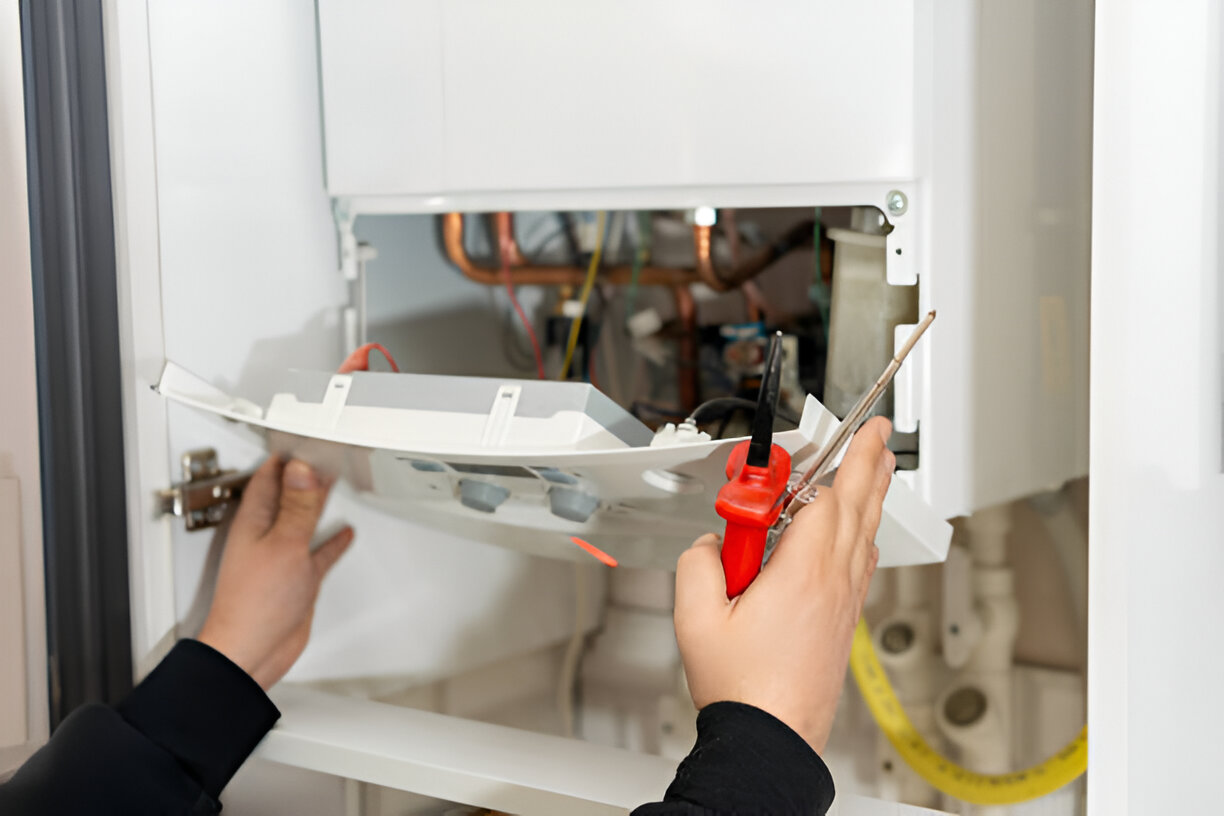Heating Tune Up in San Luis, AZ
Heating Tune-Up service in San Luis, AZ ensures comfort, efficiency, and safety. Learn more about preventive maintenance and schedule your appointment today.




Heating Tune Up in San Luis, AZ
A professional heating tune up in San Luis, AZ keeps your home comfortable, reduces energy waste, and helps protect your family from avoidable safety risks. Even though winters here are milder than in northern states, nightly temperature swings, dusty agricultural conditions, and year round use of heat pumps mean heating systems still face wear and efficiency loss. A thorough tune up addresses common performance problems, finds small issues before they become big repairs, and restores safe, efficient operation for furnaces, heat pumps, and ductless systems.
Common heating problems in San Luis homes
- Dust-clogged filters and dirty evaporator coils that reduce airflow and force systems to run longer
- Miscalibrated thermostats producing temperature swings or short cycling
- Ignition failures, weak burners, or corroded flame sensors on gas furnaces after long idle periods
- Refrigerant undercharge or compressor stress in heat pumps used for both heating and cooling
- Duct leaks, animal intrusion, or insulation gaps that lower effective heat delivery
- Safety risks such as blocked vents or flue issues that can cause poor combustion venting
What a typical heating tune up includes
A complete heating tune up covers cleaning, calibration, and safety inspections tailored to your system type. Typical tasks include:
- Filter inspection and replacement or cleaning recommendations; advise filter MERV and change frequency for San Luis dust conditions
- Burner adjustment and combustion check for gas furnaces to ensure clean, efficient flame and proper fuel-to-air ratio
- Ignition and safety control tests, including flame sensor cleaning and verification of safe ignition sequences
- Thermostat calibration and control verification to correct temperature offsets and eliminate short cycling
- Airflow testing and static pressure checks to confirm vents and ductwork are delivering proper airflow
- Electrical inspections, including capacitor and contactor checks for heat pumps and blower motors
- Coil cleaning and outdoor unit inspection to remove dust, debris, and vegetation that reduce heat exchange
- Refrigerant level check and basic refrigerant leak indications for heat pumps and mini-splits
- Combustion venting and carbon monoxide screening when applicable to ensure safe exhaust and no dangerous CO buildup
- Operational performance test, measuring temperature rise or delta T, runtime behavior, and system cycling
Diagnostic process explained simply
Technicians begin with a visual inspection and system history, then run the unit while monitoring key indicators. For gas furnaces this means watching the burner flame, measuring temperature rise across the heat exchanger, and checking venting. For heat pumps the tech will measure refrigerant pressures, outdoor and indoor coil temperatures, and compressor amperage. Airflow is assessed by inspecting filters, vents, and blower operation. Safety devices are tested under real operating conditions so you get an honest assessment of both performance and safety.
Estimated duration and cost
- Typical duration: 60 to 90 minutes for most furnaces and heat pumps; 90 to 180 minutes if cleaning coils, diagnosing multiple issues, or servicing older systems.
- Typical cost range: $89 to $229 for a standard tune up, depending on system type, accessibility, and whether additional parts or repairs are required. Final price varies with the extent of cleaning, diagnostic testing (such as combustion analysis), and whether more labor is needed for hard-to-access equipment. Emergency or out-of-season visits may affect availability and pricing.
Performance and safety benefits you can expect
- Improved efficiency and lower energy use, commonly restoring 5 to 15 percent of lost efficiency when filters, coils, and burners are cleaned and calibrated. In San Luis this means more consistent overnight comfort without overspending on heating.
- Longer equipment life, because reduced strain on motors, compressors, and heat exchangers lowers premature failure risk.
- Fewer breakdowns, with preventative detection of worn components before they fail during cold snaps.
- Improved indoor air quality, when dust and pollen accumulation are reduced through filter changes and coil cleaning.
- Enhanced safety, from verified proper combustion, venting, and carbon monoxide screening on gas appliances.
Recommended timing and frequency for San Luis
- Heat pumps: Because many San Luis homes use heat pumps year round, schedule biannual checkups — spring and fall — to prepare for heavy cooling and heating seasons and to catch issues early.
- Furnaces and gas heaters: Schedule an annual tune up in early fall, ideally in September or October before overnight temperatures begin to drop. This ensures reliable operation during the first cold nights.
- After dust storms, agricultural field work, or monsoon activity, inspect outdoor units and clean coils to avoid efficiency loss from heavy debris buildup.
- Replace or inspect air filters every 1 to 3 months during peak dust periods in San Luis.
Maintenance bundles and discounts (typical options)
Many providers offer maintenance plans that bundle tune ups with priority scheduling, discounted repairs, and seasonal checks. Common bundle features include:
- Two scheduled tune ups per year for heat pump systems
- Priority service during peak seasons and reduced diagnostic fees
- Discounted parts and labor on repairs for members
- Annual system performance reports and electronic maintenance reminders
Seasonal discounts often coincide with early fall promotions or combined heating and cooling contracts. Bundles can provide predictable maintenance costs and extra protection against unexpected repairs.
Final considerations for homeowners in San Luis
A professional heating tune up is a cost-effective way to protect comfort, safety, and the life of your heating equipment. For San Luis homes, managing dust exposure, monitoring outdoor unit clearance, and scheduling service before seasonal temperature changes are key to consistent performance. Regular tune ups pay off by lowering energy bills, reducing emergency repairs, and keeping your system running reliably when you need it most.


Financing
Financing Options Available: Get the comfort you need now with flexible payment plans.
.webp)





